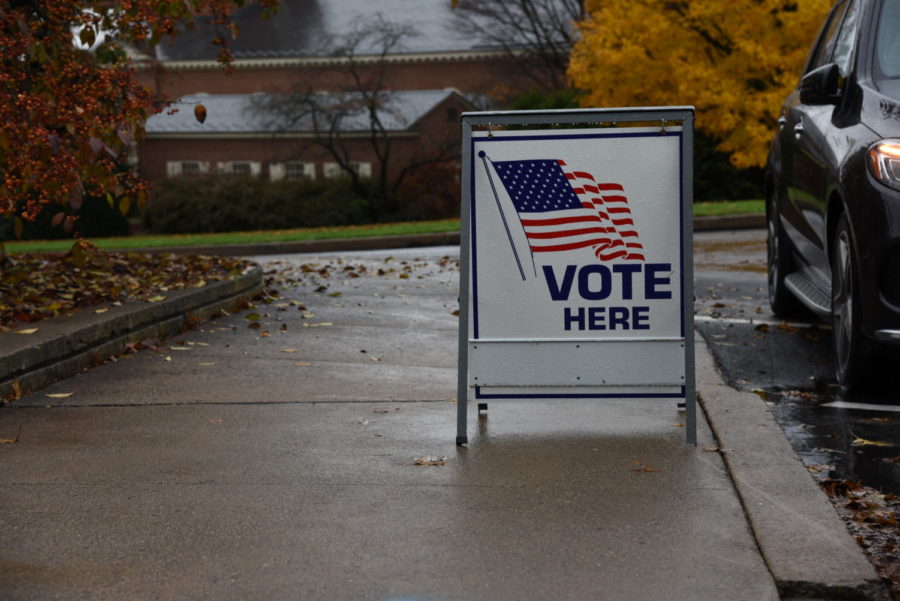Professor says Mastriano unlikely to win governor’s seat, Senate race could be closer
October 21, 2022
The 2022 midterm election is coming up and there are several critical issues on the ballot in Pennsylvania, including the future of legal abortion, economic recession and overhaul of the state education system.
Professor of Political Science Chris Ellis, spoke to The Bucknellian about candidates Democratic State Attorney General Josh Shapiro and Republican State Senator Doug Mastriano, and how people feel about issues and emerging trends on the campaign trail leading up to election day on Nov. 8.
“Looking at what’s happened with the governor’s race; the Republicans nominated a pretty extreme guy who advocates for things way outside of the realm of party politics,” Ellis, in an emailed response, said.
These ideas include things such as proposing a murder penalty for women who obtain an abortion and elevating claims made by conspiracy theorist group QAnon.
Although Mastriano did win the Republican primary, Ellis questioned the plausibility of him winning in the upcoming general election.
“Mastriano is not actually running a campaign. He’s not running ads, not raising money, there’s really nothing there. But, the letter next to your name does matter,” Ellis said, when asked about the competitiveness of the governor’s race.
This idea comes up a lot when talking about election outcomes and party identification in the aftermath of The Lincoln Project’s influence on the 2020 presidential election, Ellis said. This group was established by members of the GOP who supported Joe Biden’s run for president because they felt a second Trump term would be detrimental to the future of the party.
“When it comes to voters crossing party lines, it would’ve been a one off because of how weird Trump was, but now we keep getting mini-Trumps everywhere,” Ellis said. “I think what’s happening in Pennsylvania is a mirror of what’s happening nationally; which is that the Republican party has lost control of their voting base. [Recently], they have been nominating people who are loud over people who can win.”
Ellis, along with most of the general public, is a little less certain about predicting the outcome of the senatorial race. Republican and former television star Mehmet Oz is running against Democratic Lieutenant Governor John Fetterman. While August polls showed that Fetterman had a sizable lead over Oz, this has since narrowed.
When asked about the campaigning strategies of these two candidates, Ellis said that the multitude of important issues on the ballot have taken a backseat to the candidates trying to taunt each other online.
“The thing that bothers me is that we don’t talk about the issues,” he said. “I mean, the Fetterman-Oz race, up until this point, has mostly been about memes.”
“I think on Fetterman’s part, this is a calculated strategy. At first, he thought that he could get through by just making fun of him [Oz], but now people are calling on him to defend some of the claims he has made in the past.”
One of the most popular strategies employed by the Fetterman camp has been pointing out the fact that Oz is not a Pennsylvania native. Ellis said he is unsure of how these jabs could affect the election.
“Pennsylvania is a pretty parochial state. It has some cities but it is not as cosmopolitan as other states,” he said. “You can connect with people by saying things like ‘this guy is parachuting in to run for office,’ especially if he’s from New Jersey.”
As Oz gains popularity in the polls, the longevity of this campaign strategy is being called into question.
“The senate race is going to be much more competitive,” he said. “Fetterman’s leading, but there are also a lot of undecided voters. Typically, these voters break away from the president’s party.”
Ellis said voters, particular college-aged ones, will play a vital role in the midterm elections.
“There’s always generational gaps regarding people’s views on things,” he said. “But, there are some issues that are important to everyone. For a lot of people, you can boil it down to; Am I going to be safe? Am I going to be able to get a good job?”
Ellis said that while turnout among young people has been uncharacteristically high in recent years, pollsters are not convinced that this will continue to be the case.
“If your winning strategy includes turnout among college students you’re not going to do well,” he said. “Whether high college turnout gets across the finish line, we don’t know yet, but I wouldn’t bank on that being the most likely scenario.”




















